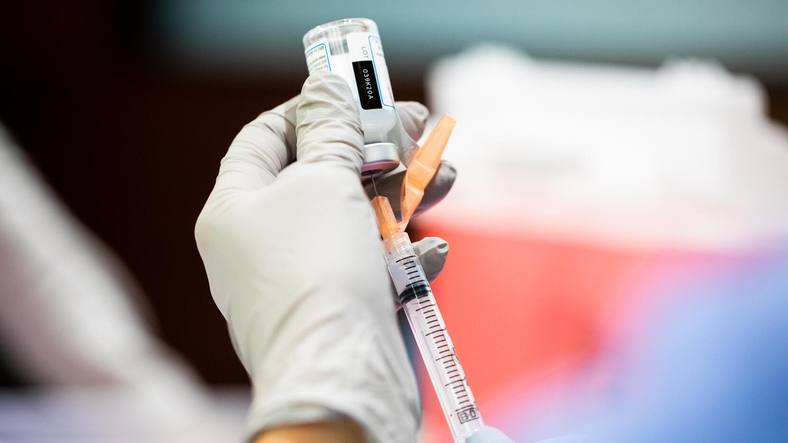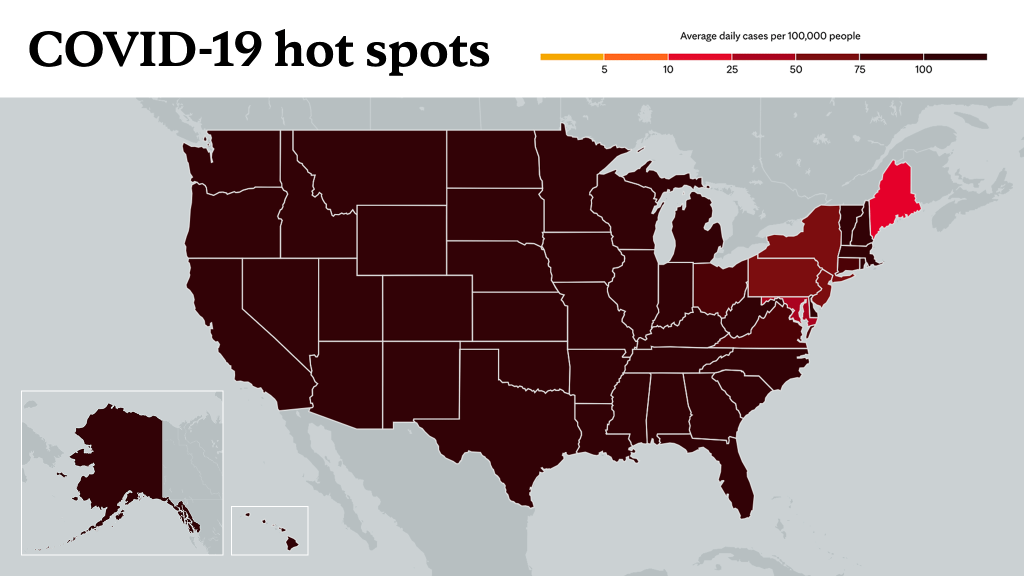-
COVID-19
Study confirms effectiveness of COVID-19 booster vaccinations

A new study from the Center for Disease Control and Prevention confirms what Mayo Clinic and other experts have been saying: COVID-19 booster vaccinations improve protection against severe illness and hospitalization. The study examined people who had three doses of the Moderna or Pfizer COVID-19 vaccines, as well as whether it was a booster dose or the No. 3 dose for people who are immunocompromised.
"The third dose actually decreased COVID-19-associated hospitalizations significantly ― more than the two doses alone," says Dr. Abinash Virk, a Mayo Clinic infectious diseases specialist.
Watch: Dr. Abinash Virk discusses the effectiveness of COVID-19 boosters.
Journalists: Broadcast-quality sound bites with Dr. Virk are in the downloads at the end of the post. Please courtesy: Mayo Clinic News Network. Name super/CG: Abinash Virk, M.D. / Infectious Diseases / Mayo Clinic.
Dr. Virk says much has been learned about the effectiveness of booster vaccinations in the short time they've been available.
"Clearly, having the No. 3 dose ― the additional dose for immunocompromised people or the booster in healthy people ― does further improve your protection against hospitalization and severe disease."
When should you get a booster vaccination?
Mayo Clinic recommends getting the COVID-19 booster vaccination five months after you've completed your last dose of the Moderna or Pfizer vaccine, or two months after the Johnson & Johnson vaccine. These recommendations also apply to those who were recently infected with COVID-19.
"If somebody has had their primary series and they got COVID-19 infection, they should get their COVID-19 booster as long as it's been five months since their last dose of the messenger RNA (Moderna or Pfizer) vaccine, and they're out of isolation," says Dr. Virk.
Dr. Virk says there's still a lot to be learned about COVID-19 infection and natural immunity. For that reason, people shouldn't rely on protection from natural immunity alone. It is safer to get COVID-19 protection from getting vaccinated than from getting COVID-19 itself. That's because COVID-19 carries risks of severe disease and other complications.
We know people can still get reinfected. We've seen that with omicron already.
"The sooner you get vaccinated, the higher your immunity will be, the more protection you will have from getting COVID-19 again."
____________________________________________
For the safety of its patients, staff and visitors, Mayo Clinic has strict masking policies in place. Anyone shown without a mask was either recorded prior to COVID-19 or recorded in a nonpatient care area where social distancing and other safety protocols were followed.
Information in this post was accurate at the time of its posting. Due to the fluid nature of the COVID-19 pandemic, scientific understanding, along with guidelines and recommendations, may have changed since the original publication date.
For more information and all your COVID-19 coverage, go to the Mayo Clinic News Network and mayoclinic.org.
Learn more about tracking COVID-19 and COVID-19 trends.








